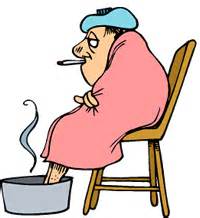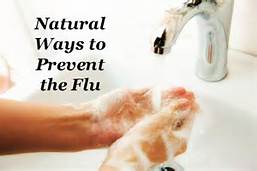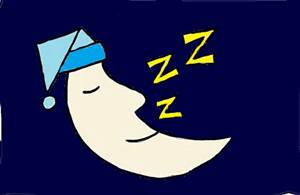


No one is immune to the misery of a bad cold or flu, once caught. So the best defense is prevention. This year, with the pandemic still going strong, prevention is especially important.
Everything about cold and flu prevention is quite simple. But it may not be easy. That’s because it takes vigilance. You have to stay on it.We tend to run on automatic pilot for most of our day and are often unconscious of the little things we do that allow germs to get a hold and set up shop. I found something online last year at lifescript.com that may help you stay healthy this season:
Top 10 Cold and Flu Busters – How to Stay Well Through Winter
The common cold or the flu can run you down for weeks. And the worst part is that life doesn’t stop while you’re home sipping chicken soup. Chores, errands and work pile up, and playing catch-up is the last thing you’ll want to do once you feel better. Upward of one billion colds plague Americans from October to March each year. But you don’t have to be one of them. Keep yourself out of the infirmary with these 10 tips for the cold and flu season…
1. Don’t Touch
Keep your hands off any possible germ-infested surface (which accounts for just about everything), and off your face. Direct contact with a sick person, such as touching or kissing, is the #1 way germs are transmitted. Eighty percent of colds are spread by direct contact.
Indirect contact, such as handling a doorknob that a sick person has touched (unbeknownst to you), and then spreading it to your face by touching your mouth, nose or eyes, is another common way germs travel from person to person.
It’s impossible to stop touching everything, but you should be mindful of where your hands have been. Wash your hands regularly and don’t touch your own mucous membranes (eyes, nose, mouth) after handling people or objects.
 2. Wash Up
2. Wash Up
Proper hand-washing is especially important during the cold and flu season. But according to a 2007 study by the American Society for Microbiology and The Soap and Detergent Association, only 77% of men and women wash their hands in public bathrooms. The U.S. Centers for Disease Control and Prevention (CDC) says that hand-washing is the single most important prevention step for reducing disease transmission.
Any time you use the bathroom, wash your hands with warm, soapy water for at least 15 seconds (the time it takes to sing the ABCs).
After washing, don’t touch the faucet, paper towel dispenser knob or door handle on the way out. Use your forearms or elbows to turn off the faucet and to dispense paper. Carry your used paper towel to the bathroom exit and use it to open the door, throwing the towel into the garbage afterward.
3. Stop Stressing
You’ve heard it once, you’ll hear it twice: Stress not only negatively affects your mental health, but it affects your physical health, too.
Stress raises cortisol levels, which weakens the immune system. And to compound that stress, people tend to make poor choices when it comes to eating, exercising and sleeping when they feel strained, further weakening the immune system. Add that to the fact that two stressful holidays – Thanksgiving and Christmas – fall during the cold and flu season, and it’s no wonder you get sick.
Stress is an inevitable fact of life, but you can counteract it by finding a balance and learning to unwind. Whether it’s exercising, journaling, repeating positive affirmations, or hanging out with family and friends, whatever helps you de-stress, do it often. Incorporate some peace and relaxation into every day.
4. Fundamental Fluids
Drink up! Downing eight 8-ounce glasses of water should be part of your regular routine every day, but especially during cold and flu season. Water is used by every cell in your body and is essential for flushing out toxins and germs.
If water isn’t your beverage of choice, find ways to make it more appealing and flavorful. Have fresh-cut lemon or lime wedges on hand, or purchase flavored or sparkling water at the grocery store. Always have a reusable container of water with you, too.
Hot tea is also a good way to take in more water. Not only is it soothing in the cold winter months, but hot tea (especially peppermint flavors) can help clear nasal congestion and open your airways.
 5. Eat Well
5. Eat Well
Now isn’t the time to indulge in the heavier, hearty meals we gravitate to during fall and winter. Your food choices impact your immune system, and nutrient-rich foods will keep it healthy and happy.
A healthy immune system is your best defense against pathogens such as viruses, bacteria and carcinogens that make you ill. Immune cells are found throughout your body – in your tonsils, lymph nodes, spleen, thymus gland, and bone marrow. By focusing on nutrient-rich foods instead of high-calorie, sugary or fatty foods such as cookies, fried chicken, or donuts, you can help ward off illness.
The best foods to include in your diet are:
• Omega-3-rich fish, such as salmon, herring and mackerel
• Low-fat yogurt
• Nuts and seeds
• Citrus fruits, such as oranges and grapefruit
• Vitamin-rich vegetables, such as leafy greens, tomatoes, broccoli, and sweet potatoes
• Lean protein, found in chicken, fish, tofu, eggs and low-fat dairy foods
• Garlic and onion
6. Antioxidants
Some of the best antioxidants for keeping you healthy are vitamin A, C and E.
Vitamin A
Vitamin A is a disease-fighting antioxidant and immune-system booster. It helps prevent and fight infections by regulating the immune system that makes white blood cells that destroy harmful bacteria and viruses. Vitamin A may help lymphocytes (a type of white blood cell that fights infections) function more effectively. The recommended dietary allowance (RDA) for vitamin A is 4,000 IU daily for women and 5,000 IU daily for men.
Preformed vitamin A is found in animal foods such as eggs, whole milk and liver, and in fortified foods such as breakfast cereals. Provitamin A carotenoids, like beta-carotene, are abundant in dark-colored fruits and vegetables such as carrots, leafy greens, cantaloupe, broccoli, squash, sweet potatoes, and peas.
Vitamin C
Your immune system relies heavily on this vitamin for proper functioning. Studies have shown that vitamin C helps shorten the duration and intensity of colds, as well as help fight respiratory infections.
The RDA for vitamin C is 60 mg a day for both men and women. Many experts believe that taking up to 200 mg a day is most beneficial. Vitamin C is found in citrus fruits and juices, broccoli, dark greens, kiwi, red peppers, and strawberries.
Vitamin E
While not as well-known an immune booster as vitamin C, Vitamin E promotes the production of B-cells that produce antibodies and destroy harmful bacteria. The RDA for women is 8 mg or 12 IU per day, and 10mg or 15 IU daily for men. Higher doses, in the 400-800 IU per day range, are used for full antioxidant effects. Taking vitamin C along with vitamin E may enhance its antioxidant power.
7. Minerals
One of the most important and popular minerals in beating the cold and flu season is zinc. This mineral is required for the production and activation of T-cells, a type of white blood cell that is involved in battling infections. Without these T-cells, the immune system can become overwhelmed with bacteria or viruses that it cannot fight off.
Zinc empowers the immune system to wipe out infections and can help shorten a cold’s duration by destroying the virus that is at the back of the throat. Most effective is sucking on sugar-free zinc lozenges every two hours from the very start of the cold.
The RDA for zinc is 12 mg for women and 15 mg for men. Protein-rich foods are high in zinc. These include red meat, poultry, seafood, eggs, dairy products, beans, nuts, whole grains, and fortified breakfast cereals. Almonds are also a terrific vegetarian source of zinc; just four ounces can supply half the RDA for women. However, don’t overload on too much of a good thing. Excess amounts of zinc (80 mg or more per day) can actually make women more susceptible to urinary tract infections.
8. Get Fit
It’s true: People who exercise regularly are less likely to get sick. In fact, studies have shown that exercising daily and maintaining a healthy body weight bolsters your immune system and helps your body fight infection.
Daily exercise, whether a walk after dinner or a kickboxing class at the gym, also keeps your stress levels in check and promotes a better night’s rest. However, too much exercise can have the opposite effect. If you’re a serious athlete, don’t forget to include rest days in your fitness routine to give your body a break.
Cold weather is no reason to take up residence on your sofa. Try indoor activities like lifting free weights or doing an exercise video in your living room. Where there’s a will there’s a way.
 9. Sound Sleep
9. Sound Sleep
The days get shorter, but it’s still difficult to get the eight hours of sleep a night that experts recommend. However, during the cold and flu season, getting enough zzzs is especially important. If you’re sleep-deprived, you’re more susceptible to getting sick. You need the strength you get from rest to help you fight off a cold or flu. Plus, a lack of sleep makes you tired, cranky and unproductive. As a result, you get stressed out, further breaking down your immune system.
Develop an evening routine to help you bed down easier. Turn off all distractions like TV and the computer long before you’re ready to fall asleep. Avoid late-night exercise, caffeinated drinks and food close to bedtime. Keep your room dark and at a comfortably cool temperature.
10. Get Vaccinated
If you really want to maximize your odds of avoiding the flu, get vaccinated. The CDC reports that the U.S. has produced the most doses of the vaccine ever this year.
Flu season begins in October and can last through May. While experts recommend getting vaccinated in October or November, you can still do it in December or later. The flu vaccine is recommended for people at high risk of developing serious flu complications: children under 5 years old, pregnant women, people over the age of 50, and people in contact with those who are at high risk. Of course, anyone can get vaccinated.
The vaccine is available as a shot or a nasal-spray. Its effectiveness depends on the age and health status of the person, as well as the similarity between the virus strains and the strains in circulation.
In my opinion, #9 (Sound Sleep) is way too far down on the list. Sleep is so much more important than our culture realizes. To my mind, you can’t value it highly enough. It is THE thing that restores our energy.
Also, stay hydrated (see #4). It makes a big difference.
Here are some other habits that immensely further your cold and flu prevention efforts:
- Close the lid before you flush the toilet. You would not believe the amount of spray that goes out into the bathroom when you flush a toilet. That spray is loaded with germs. Loaded! So close the lid first, then flush.
- Get regular shiatsu treatments to boost your immune system in a major way.
- Or . . . try some self-massage on your feet. Chinese Reflexology
- Don’t forget your Vitamin C.